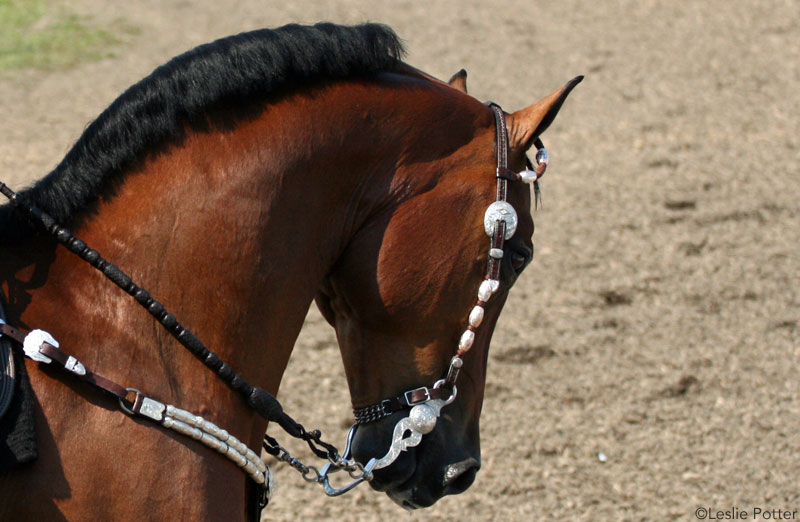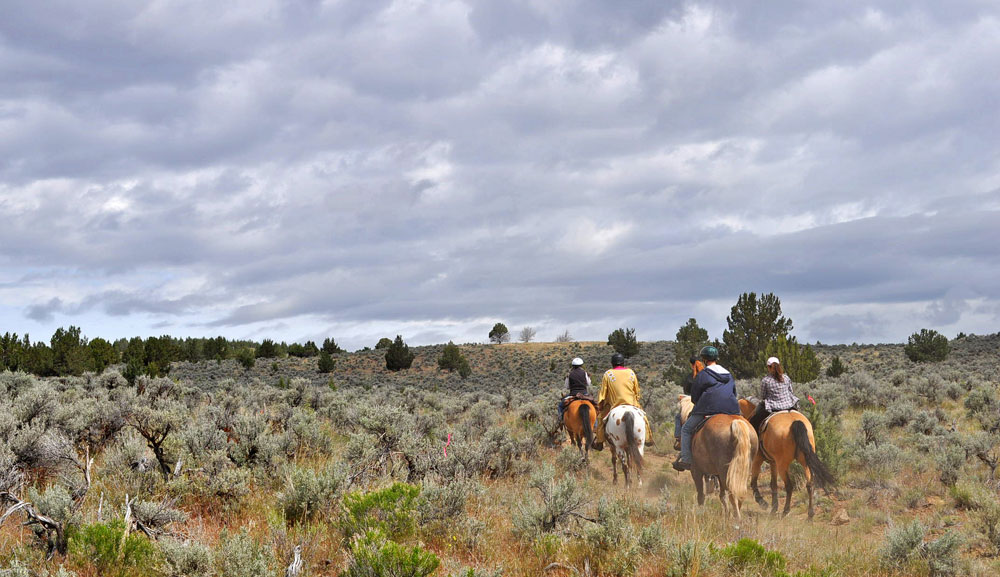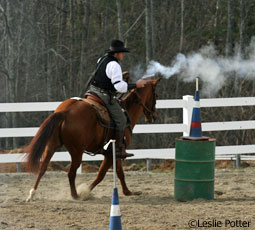There are countless different styles and types of bosals available, and quality will vary as much as design. The bosal should have a balanced feel, some give in the cheeks and a shape that conforms well to a horse’s face. A well-made bosal will be skillfully constructed, symmetrical, and have smooth and uniform braiding. Wide, loose plaiting is less expensive, but it will have a rougher feel against the horse’s face than a smaller and tighter weave. The choice between rawhide and leather will depend on your horse’s sensitivity, as will the degree of stiffness. As a general rule of thumb, a heavier bosal with more “thump” works well for a heavier horse, while lighter horses do well in a bosal with more give.
The bosal’s contours affect the distribution of pressure, as well. A teardrop shape will make more contact through the cheeks. While that might be suitable for a narrower face, an oval shaped bosal is a better match for a larger horse.
One thing a hackamore shouldn’t be made of is metal. A bosal with a metal core is heavy, unbalanced and unyielding, a device of intimidation, not communication. In addition, a “mechanical hackamore” isn’t a hackamore at all. It works off leverage and presses into the horse’s nose, chin and sides of his face simultaneously.
Choosing an appropriate good-quality hackamore might set you back a few dollars, but you’ll see the payback in your horse’s performance.
Back to Hands-on Hackamore Training.






any thing good quality lasts!